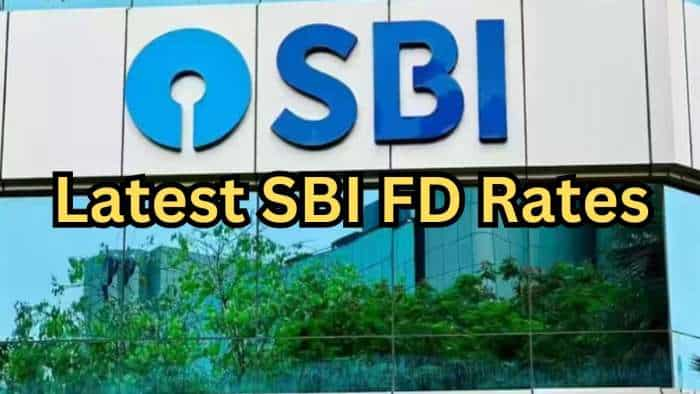High employee attrition of 25% in private banks pose operational risk: RBI Report
Employee attrition in private sector banks has witnessed an increase to about 25 per cent and this high turnover rate poses significant operational risk, according to the latest Report on Trend and Progress of Banking in India 2023-24.
)
Employee attrition in private sector banks has witnessed an increase to about 25 per cent and this high turnover rate poses significant operational risk, according to the latest Report on Trend and Progress of Banking in India 2023-24.
Employee attrition rates are high across select private sector banks and small finance banks (SFBs), the report, which was released by the Reserve Bank of India (RBI) said.
The total number of employees of private banks surpassed that of public sector banks (PSBs) during 2023-24, but their attrition has increased sharply over the last three years, with average attrition rate of around 25 per cent, it said.
"High attrition and employee turnover rate pose significant operational risks, including disruption in customer services, besides leading to loss of institutional knowledge and increased recruitment costs.
In various interactions with banks, the Reserve Bank has stressed that reducing attrition is not just a human resource function but a strategic imperative," it said.
Banks need to implement strategies like improved onboarding processes, providing extensive training and career development opportunities, mentorship programmes, competitive benefits, and a supportive workplace culture to build long-term employee engagement, it said.
In view of several irregularities observed in grant of loans against gold ornaments and jewellery, including top-up loans, the Reserve Bank advised supervised entities to comprehensively review their policies, processes and practices on gold loans to identify gaps and initiate appropriate remedial measures in a time-bound manner.
Supervised entities were advised to closely monitor their gold loan portfolios and ensure adequate controls over outsourced activities and third-party service providers, it said.
The report said climate change risks are envisaged to impact profitability of financial institutions, growth prospects, and inflation dynamics and, thus, impinge upon financial stability and price stability.
To foster assessment of these concerns by regulated entities, regulatory and supervisory frameworks need to be strengthened with enhanced risk management guidelines, disclosure requirements, periodic stress testing, and stipulating reasonable verification and assurance functions, it added.
Get Latest Business News, Stock Market Updates and Videos; Check your tax outgo through Income Tax Calculator and save money through our Personal Finance coverage. Check Business Breaking News Live on Zee Business Twitter and Facebook. Subscribe on YouTube.
RECOMMENDED STORIES

Power of Compounding: How soon can you build Rs 1.5 crore corpus with monthly investments of Rs 1,500, Rs 2,500, and Rs 3,500?

Latest SBI FD Rates: What will you get on Rs 5 lakh investment in SBI Amrit Vrishti, 1,3, and 5-year fixed deposits

Delhi Elections 2025: Voting begins at this hour on February 5, here's where to track latest information online

Power of Rs 9,000 SIP: How can you generate Rs 10 crore corpus with just Rs 9,000 monthly investment?

Revised New Tax Slabs: Rs 12,500 tax on Rs 15 lakh Income? How you may need to pay just that on Rs 12.75 lakh annual salary and Rs 2.25 lakh capital gains

Highest FD Rates: This is what banks like SBI, BoB, PNB, Canara Bank, ICICI Bank and HDFC Bank are providing on Rs 2 lakh investment

Revised Tax Slabs: Annual Income Rs 12,75,001? Will you be taxed on Re 1 or Rs 12,75,001? Know what CAs say

Rs 500 Daily SIP vs Rs 15,000 Monthly SIP: Which can give higher returns in 10, 20, and 30 years? See details
04:54 PM IST








 Makar Sankranti Bank Holiday: Will banks be closed in your city on Makar Sankranti? Check RBI's holiday calendar
Makar Sankranti Bank Holiday: Will banks be closed in your city on Makar Sankranti? Check RBI's holiday calendar SBI writes to RBI to consider non-financial transactions as well for tagging an account as operative
SBI writes to RBI to consider non-financial transactions as well for tagging an account as operative Banks should adopt 'bottom-up' approach for preparing credit plan: RBI's Swaminathan
Banks should adopt 'bottom-up' approach for preparing credit plan: RBI's Swaminathan RBI lifts restrictions on Sachin Bansal's Navi Finserv
RBI lifts restrictions on Sachin Bansal's Navi Finserv India's services exports rise 22.3% to $34.3 billion in October, as per RBI data
India's services exports rise 22.3% to $34.3 billion in October, as per RBI data